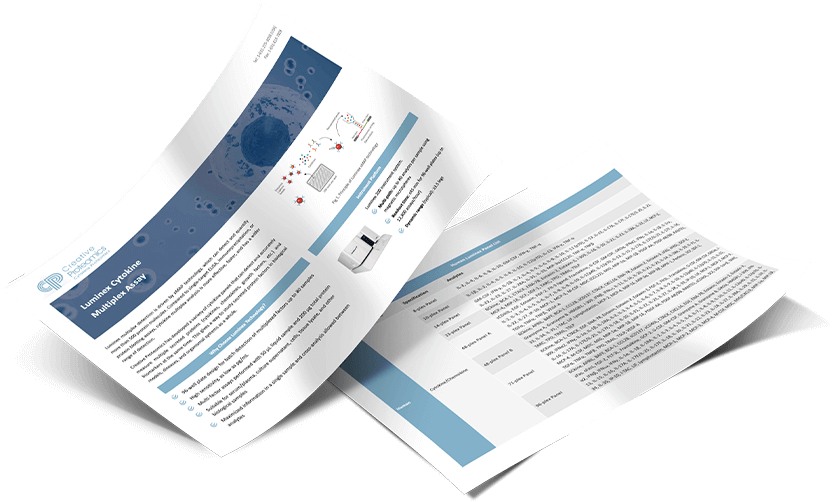Introduction
Autoimmunity is a phenomenon in which the body's immune system develops an immune response to its own antigens and produces autoantibodies or auto-sensitizing lymphocytes. When autoimmunity is abnormal, autoantibodies and reactive lymphocytes attack the tissues or airways that express the target antigen, causing autoimmune disease (AID). The pathogenesis of autoimmune diseases is very complex, but the activation of auto-reactive T cells and B cells is an inevitable part of the development of autoimmune diseases, and the detection of cytokines produced by T cells reflects the degree of activation of T cells to a certain extent. Different cytokines are involved in different autoimmune disease processes, and the role of the same cytokine varies in different autoimmune diseases.
Mechanism and Function
IL-12 is a cytokine that induces a Th1-type immune response, and in AID, when an individual develops an infection, the antigen-presenting cells rapidly produce IL-12, which transmits signals that produce an inflammatory immune response, thus further triggering the activation of auto-reactive T cells and Th1-type differentiation, which exacerbates AID. AIDs such as rheumatoid arthritis are regulated and mediated by direct Th1-based auto-reactive T-cell differentiation and activation, which shifts Th1-based immunoregulation to Th2-based immunoregulation, while ameliorating the disease without inducing widespread and intense immunosuppression. Tumor necrosis factor (TNF) promotes immune tolerance of auto-reactive T cells. However, in autoimmune demyelinating diseases, TNF can also act as an anti-inflammatory cytokine and suppress the disease, with dual effects. IFN-α mainly plays a suppressive role in autoimmune diseases, in non-obese diabetic high schools, the expression of IFN-α can reduce the damage of auto-reactive T cells to pancreatic islet cells.
And the cytokines that exert their effects are not identical in the different AIDs that occur. In rheumatoid arthritis (RA), synovial cells in RA produce large amounts of TNF-α, as well as IL-1, platelet-acquired growth factor (PDGF), and vascular endothelial growth factor (VEGF), and cause synovial damage. In multiple sclerosis (MS), the expression of cytokines such as IL-1, IL-2, IL-4, IL-10, and IFN-γ is increased, with the Th1 type of cytokines being more active in the active phase of MS, and the Th2 type in the recovery phase.
Creative Proteomics can provide cytokine detection platform for scientific research. According to different purposes, our dedicated analysts will customize exclusive solutions for you. We aim to provide customers with high-quality and convenient services to help you accelerate the progress of your project.
Our cytokine detection service includes but is not limited to:
- Quantitative and qualitative detection of cytokines in different species
- Quantitative and qualitative detection of cytokine antibodies
- Quantitative and qualitative detection of single/multiple cytokines
Sample requirements
- Sample Types-Blood, serum, plasma, cerebrospinal fluid, cell culture supernatant, tissue homogenate, cell culture medium, urine, tumor, etc.
- Sample Volume-It is optimal for at least 200µl of each sample. This volume allows for triplicate testing of each sample.
Our advantages:
- Efficient design: Multiplex reaction detecting in various methods are available, which can be selected according to different samples and requirements.
- Sensitive Detection: High-quality antibodies are used in the detection process to improve detection specificity and accuracy.
- Reliable results: The feedback results are professional and efficient
Technology platform:
We mainly provide the Luminex cytokine detection platform. Luminex uses fluorescently encoded microspheres with specific antibodies to different target molecules. The different microspheres can be combined freely to a certain extent so that up to 100 analytes can be tested multiple times simultaneously in a single experiment.
The Luminex cytokine assay platform has the following advantages:
- Multiple detection: simultaneous detection of 100 biological targets
- Short experiment time: 1-3 weeks
- High sensitivity: the lower limit of accurate quantification is as low as 0.1 pg/mL
- Save samples: only need a sample volume as low as 25 μL
- Time saving: the experiment process only takes 4 hours
For your different needs, we can also provide the following detection methods:
- Enzyme-linked immunosorbent assay (ELISA)
- Flow cytometry
Workflow

For more information about the cytokines in autoimmune disease detection service or need other detection requirements, please contact us.
References:
- Lai Y, Dong C. Therapeutic antibodies that target inflammatory cytokines in autoimmune diseases.International Immunology, 2016, 28(4):181.
- Sun L, He C, Nair L,et al. Interleukin 12 (IL-12) family cytokines: Role in immune pathogenesis and treatment of CNS autoimmune disease.Cytokine, 2015, 75(2):249-255.

